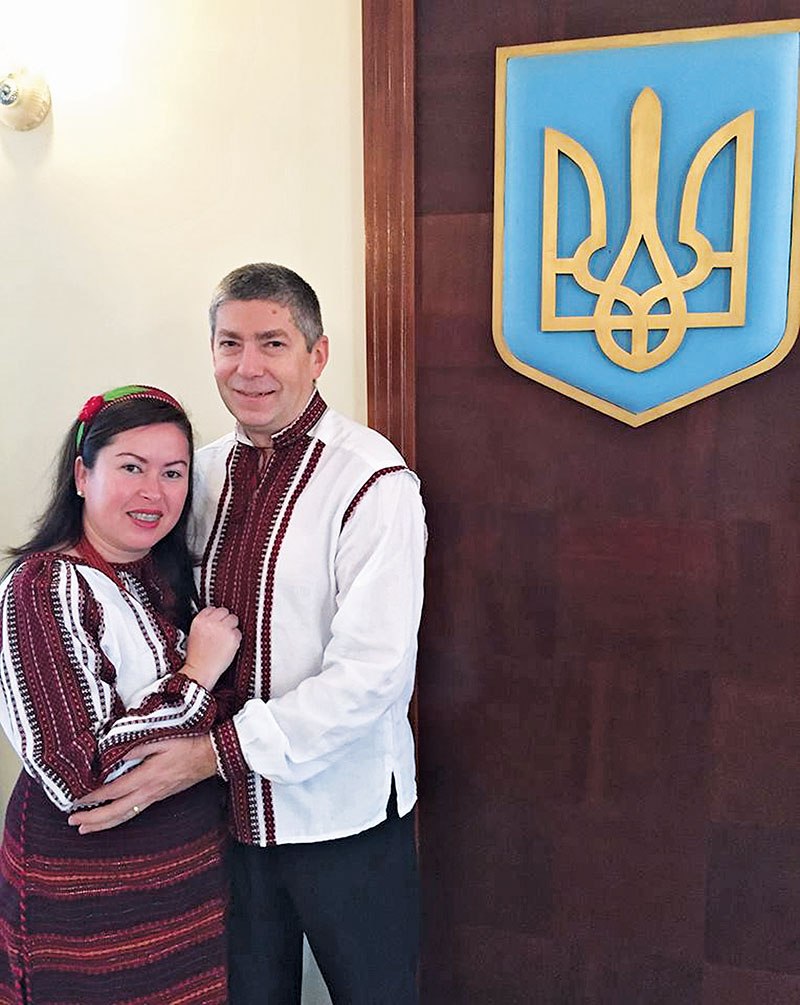There are many problems that Brazil and Ukraine need to solve before they can actively advance bilateral relations.
But with at least 600,000 people of Ukrainian descent in Brazil — still a small share of the nation’s 200 million people — there are concrete reasons why a more promising future can be charted.
Trade between the two countries has dipped in the last years, to $300 million by latest count, because both countries are in recession — and Ukraine is in war.
Also, Ukraine’s geopolitical priorities put Europe first with North America — the United States and Canada — second.
“It’s a specific market, it’s a Latin American market, it’s not European neither North American,” Rostyslav Tronenko, Ukraine’s ambassador to Brazil, told the Kyiv Post.
Despite the problems, the bilateral relationship has improved in the last decade or so.
“Fifteen years ago there were no Ukrainian companies here,” Tronenko says. He claims there are at least 10 Ukrainian companies in Brazil working in such areas as agriculture, information technology, pharmaceuticals, steel production and infrastructure. However, asked to name one, he would not.
The highest bilateral trade turnover was in 2008, with $1.2 billion.
“The task of the embassy is to make many more Ukrainian companies to come to Brazil,” Tronenko says, since Brazil is the largest Latin American market and the world’s 7th largest economy.
Bilateral relations began in 1992 resulting with 17 cooperation agreements so far, including a visa-free regime. Agreements on military cooperation and airspace are still under review by Brazil’s congress.
“It’s also a rather bureaucratic market,” the ambassador says, citing another reason for depressed trade.
The anti-dumping measures against, for example, Ukraine’s steel or tire production companies, have been felt by Ukrainian exporters. They do it to protect their own national producers, Tronenko says.
But the situation is changing because of Brazil’s difficult financial situation and large deficit, prompting Brazil to be more open in international trade, the ambassador says.
Another disappointment was Brazil’s recent decision to pull out of its decade-long Cyclone-4 rocket project with Ukraine. Instead, it is now looking to cooperate with the U.S. or Russia.
“The Brazilian government has a lot of other priorities and it’s a pity that they were promising to us the realization of this project,” Tronenko says. “They did it unilaterally without explaining to us the reason.”

Ukraine’s Ambassador to Brazil Rostyslav Tronenko and wife Fabiana on Ukrainian Vyshyvanka Day on May 21. (brazil.mfa.gov.ua)
Despite the lost economic threads, Tronenko is hopeful.
In some ways, the ambassador says, Ukraine is ahead of Brazil in making needed changes in society.
“The Orange Revolution and the Dignity Revolution were the message that Ukrainian society is changing,” Tronenko says, the same message that the Brazilian government is receiving from Brazilian society with recent protests. “We are both on the way to improve our democracy.”
Some Brazilians didn’t even have to turn on their TV to learn about what was happeing in Ukraine.
The large Ukrainian diaspora in Brazil was active during the EuroMaidan Revolution with peaceful rallies in the Brazilian streets. “Our human ties are very strong,” Tronenko says.
Last year, the Ukrainian diaspora in Brazil built a monument in honor of Ukraine’s hero poet Taras Shevchenko, whereas next year they will celebrate the 125th anniversary of the first Ukrainian migrants coming to Brazil.
Brazil has been on Ukraine’s side in its confict with Russia, Tronenko says. The ambassador doesn’t see Brazil’s involvement with Russia in the BRICS union (Brazil, Russia, India, China and South Africa) as a problem in its bilateral relations with Ukraine.
“Brazil says that there is no military resolution of the conflict in Ukraine,” Tronenko says. During the last BRICS Summit, which was held in Russia, Brazil called all parties to comply with the Feburary Minsk peace agreements, including Russia.
“Last year they assured us in March after the annexation of Crimea by Russia that the Brazilian government will never… recognize the annexation of Crimea,” Tronenko says.
Being the largest Roman Catholic country in the world, the war in Ukraine is a “Bible issue” Tronenko says. “It’s the fight between David and Goliath, and the stance of Brazilian society is on our side.”
Brazil’s most famous Christ The Redeemer statue in Rio de Janeiro is lit up twice a year – during the Ukrainian Flag and Independence Day holidays – in Ukrainian colors. “They are doing that just to support Ukraine,” Tronenko says.
In his assignment already for three years, Tronenko has a Brazilian-native wife with Ukrainian ancestry and a daughter.
Kyiv Post staff writer Ilya Timtchenko can be reached at [email protected].
